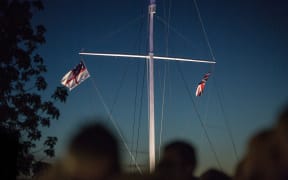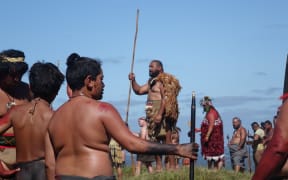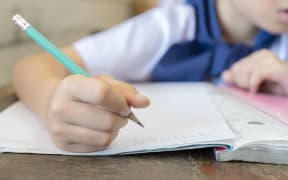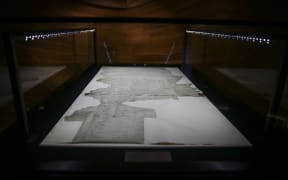Putting New Zealand's own history of the centre of the country's schooling is is the sign of a mature society and will help address inequities, educators say.
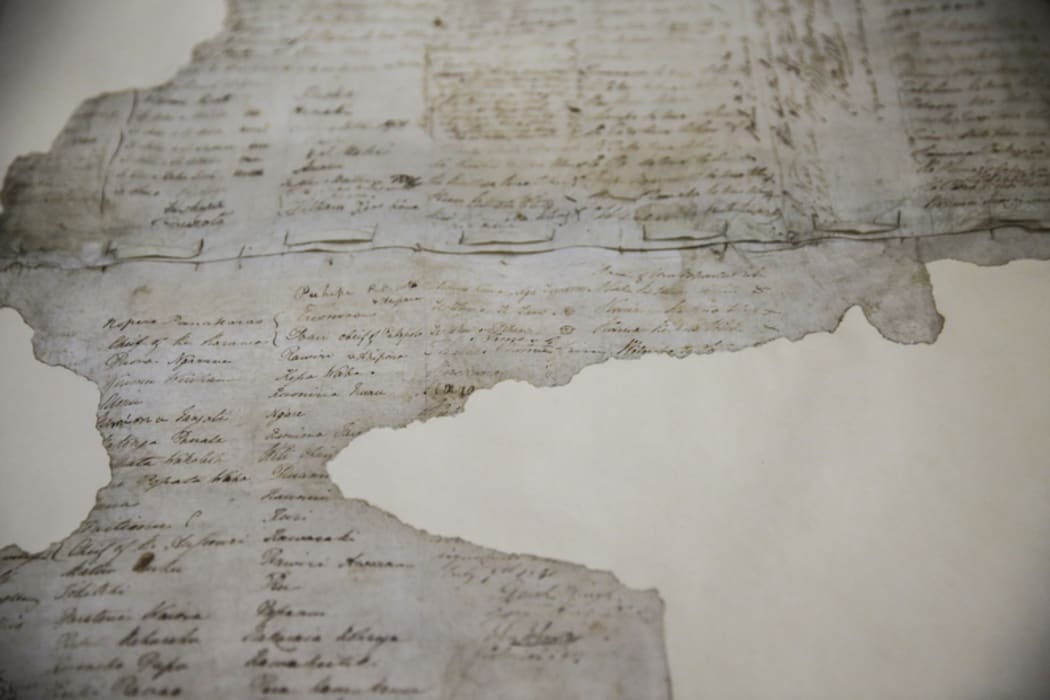
A Treaty of Waitangi document. Photo: RNZ / Rebekah Parsons-King
The government has published the final version of the subject curriculum for Aotearoa New Zealand's histories and Te Takanga o Te Wā, which will be compulsory in every school up to year 10.
Launching the curriculum yesterday, Prime Minister Jacinda Ardern said it gave New Zealanders a "better understanding of one another, through learning more about Māori, about the migrant history of Pasifika, our Asian communities."
It has stirred up debate in Parliament, where ACT deputy leader Brooke van Velden said it focused too much on colonisation and dividing people into villains and victims.
The curriculum ignored scientific and technological advances and the women's movement, things that New Zealand could be proud of, she said.
"Instead this history curriculum is all about colonisations and two sets of people, Māori and Pākehā, it doesn't actually talk about the beauty of New Zealand history and the fact that we are a multi ethnic society.
"We need to make sure that we are raising our children to make sure that they are empowered to live in a society where everybody is learning about all aspects of New Zealand's history curriculum."
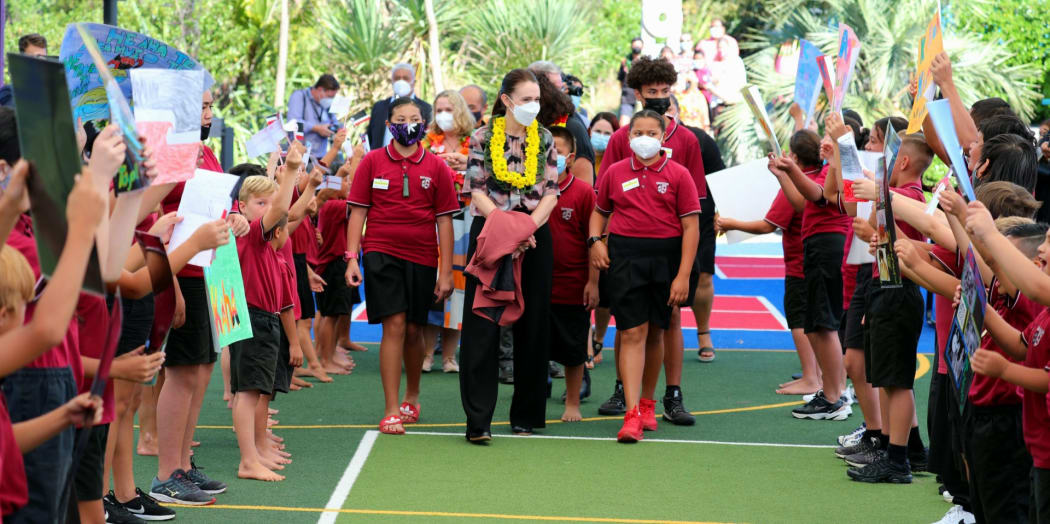
Prime Minister Jacinda Ardern launched the Aotearoa New Zealand histories curriculum at Sylvia Park School on Thursday. Photo: RNZ / Nick Munro
Green Party co-leader James Shaw told MPs it was vital to acknowledge New Zealand was built on notions of imperialism and xenophobia.
"One of the ways that you empower people is by being honest about the past ... and that is actually how you start to be able to think about the future," Shaw said.
"If Brooke wants to talk about other ethnicities, let's talk about the first waves of Chinese settlers who were absolutely the targets of xenophobia and were treated appallingly by Pākehā settlers, in fact only got an apology for that in the last 20 years.
"It was not a pleasant history and I think it is very important that we are honest about it and just say look this is what happened, what this is what took place, and there are consequences that we feel today for that, particularly for Māori.
'Sleepwalking'
Victoria University history professor Charlotte Macdonald said it was a sign of a mature society to "put our own history to the centre of our schooling".
"It's kind of like sleepwalking if we don't know our histories whether it's as individuals, as communities, families, communities or as a national society, then we are walking blind, both in the present and into the future.
Rather than a "victims and villains" view of history there were broad-ranging themes - as well as a lot of scope for schools to explore how history played out in their local area, she said.
"It might might be who signed the women's suffrage petition in 1893 in Hokitika or in South Dunedin or in Dargaville ... all of those events can be explored."
Te Akatea, the Māori Principals Association, said the curriculum had the potential to transform education and society.
"It's about understanding an accurate historical narrative of how we all got here here in Aotearoa, and that if we knew the accurate narrative of how we all got here, then we'd be more likely to think, speak, and teach in decolonising and honourable ways, and I say honourable ways in terms of Te Tiriti as a foundation," association president Bruce Jepsen said.
"I think we always find space for things that we value. If we're talking about transforming New Zealand education to address those inequities that have been generated by the previous curriculum, this is our opportunity.
"If we do this job properly then we're going to end up with a fantastic society here in New Zealand."
Jepsen said his school had been forming relationships with local iwi and integrating localised history into the curriculum.
The new curriculum was officially announced last February, following up on a pledge in September 2019 that history would be compulsory in all New Zealand schools.
The government finished consultation over the curriculum in June, with teachers saying it would help close "woeful" knowledge gaps on the country's past.
That was after criticism by an expert panel which found the draft curriculum failed to include topics like women, labour and economics, and the 600 years of pre-colonial Māori life.
The changes are part of the government's attempt to make it clearer what children will be expected to know in each subject, with reworks of the English, maths and science curriculums expected to follow over the next four years.

